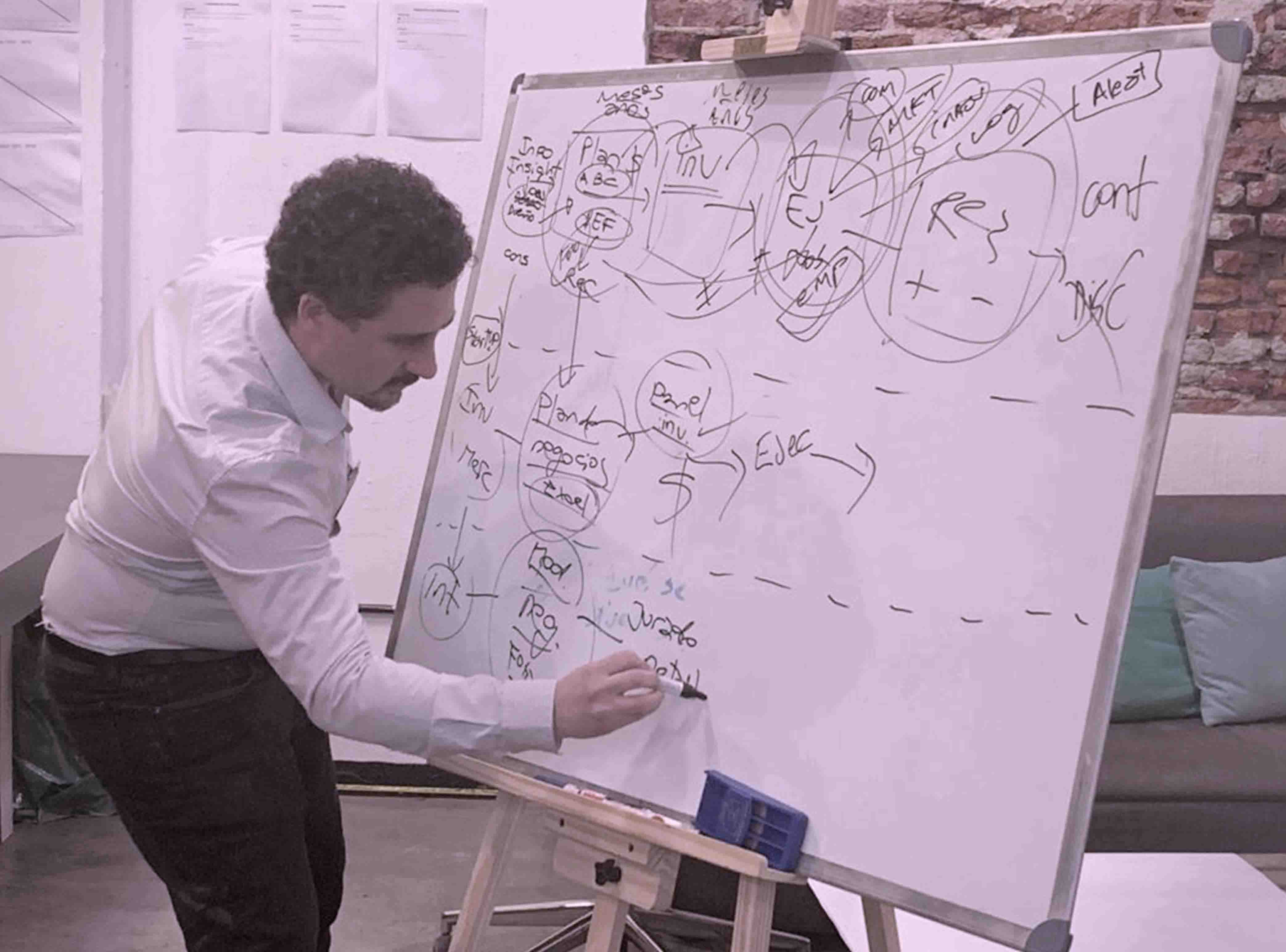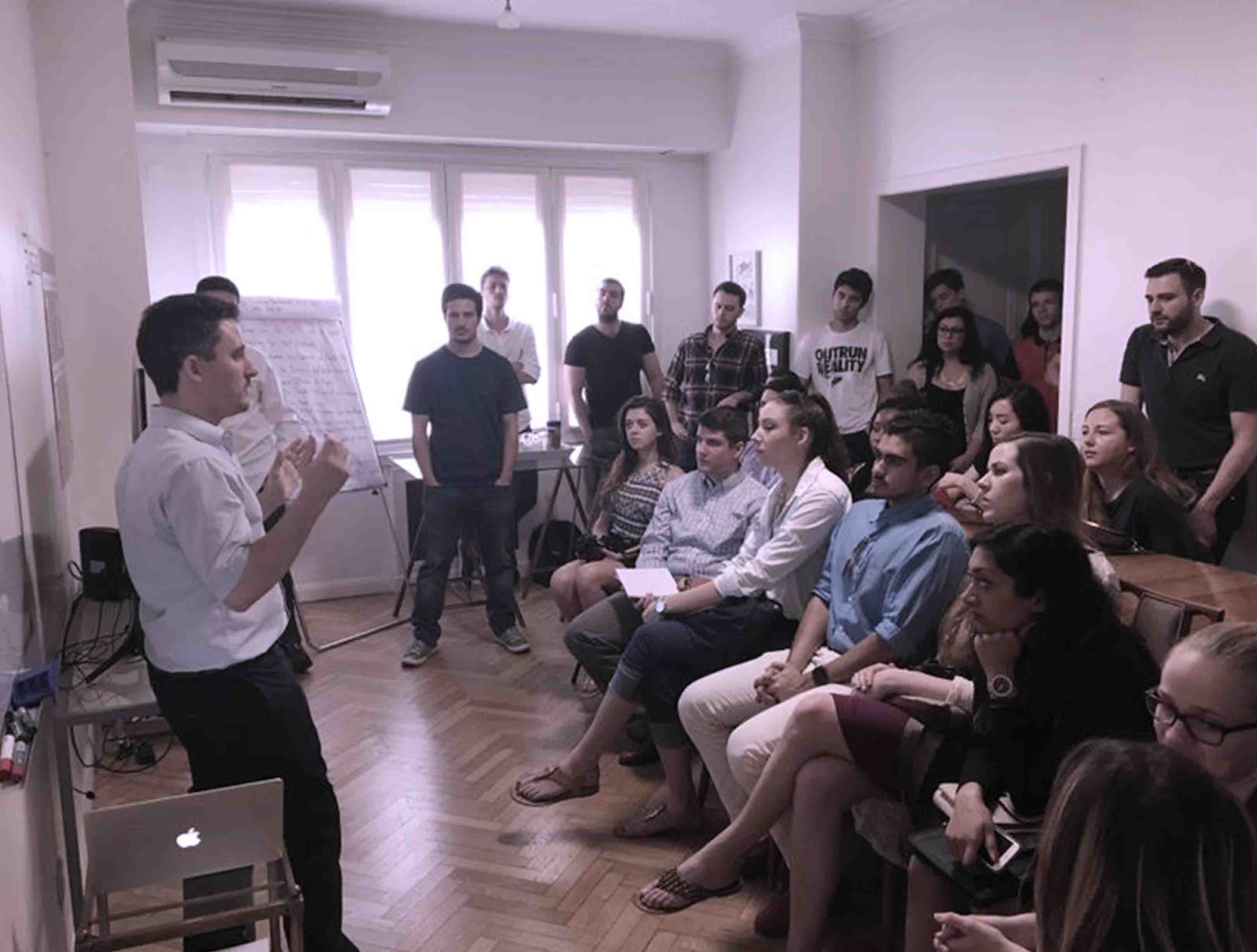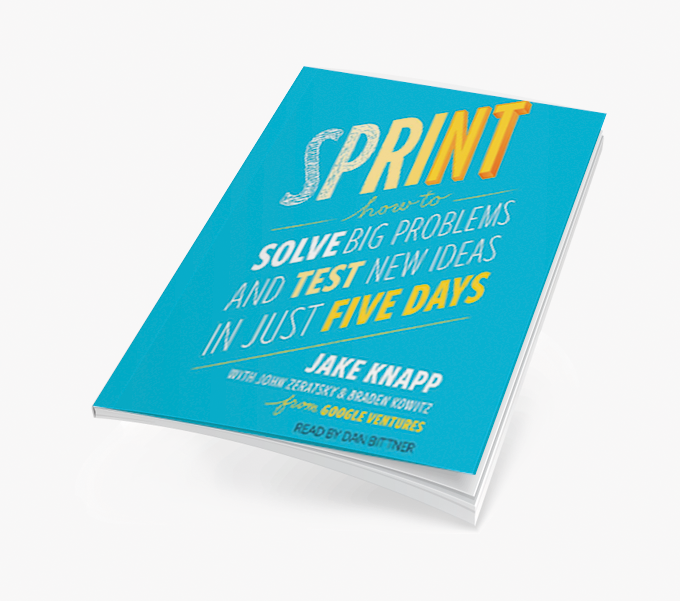

from Jake Knapp; John Zeratsky; Braden Kowitz
"Sprint," a groundbreaking approach to problem-solving and innovation, guides teams in startups and established organizations through a time-bound, five-day process. Emphasizing rapid prototyping, cross-functional teamwork, and iterative learning, this method, pioneered at Google Ventures, is a beacon for entrepreneurs and leaders seeking agile solutions in business strategy and product development.
"Prototype mindset. You can prototype anything. Prototypes are disposable. Build just enough to learn, but not more. The prototype must appear real." Sprint, Jake Knapp, John Zeratsky, and Braden Kowitz
BRIEF BOOK SUMMARY
"Sprint" by Jake Knapp, along with John Zeratsky and Braden Kowitz, introduces a revolutionary five-day process aimed at solving complex problems and testing new ideas swiftly and effectively. This method, honed within the fast-paced environment of Google Ventures, is designed to cut through the noise and accelerate the path from concept to solution. It empowers teams in startups and established companies alike to push beyond the boundaries of traditional workflows and embrace a more dynamic, iterative approach to innovation.
At the heart of the Sprint methodology is the idea of focused, time-bound collaboration. By condensing the process of brainstorming, prototyping, and testing into a single week, teams are compelled to make decisions quickly and efficiently. This approach not only fosters creativity but also drives teams to prioritize the most impactful aspects of their projects. The structured daily breakdown—from understanding the problem on Day 1 to conducting real user tests by Day 5—ensures that every step is purposeful and directed towards tangible outcomes.
One of the key strengths of the Sprint process is its emphasis on cross-functional teamwork. By assembling a diverse group of individuals, each bringing their unique expertise and perspectives to the table, the method leverages collective intelligence to tackle challenges from multiple angles. This inclusivity and collaboration are crucial in uncovering innovative solutions that might not emerge within more siloed or hierarchical structures.
Rapid prototyping is another cornerstone of the Sprint method, enabling teams to transform abstract ideas into concrete, testable products or services in a remarkably short time. This phase is critical for learning and iteration, allowing teams to gather valuable feedback from real users without the need for lengthy development cycles. By creating high-fidelity prototypes that mimic the final product, teams can identify and address flaws early, saving time, and resources, and potentially guiding the project in new, unexpected directions.
"Sprint" offers not just a methodology but a mindset shift for businesses looking to navigate the complexities of the modern market. It advocates for a proactive, agile approach to problem-solving that can be adapted across various contexts and industries. For freelancers, entrepreneurs, intrapreneurs, and business leaders, "Sprint" serves as both a guide and an inspiration for implementing rapid innovation cycles, fostering a culture of collaboration, and ultimately driving projects to success with speed and precision.
WHY SHOULD YOU READ THIS BOOK? By Francisco Santolo
Innovation, continuous learning, prototyping, and validation are not just trendy concepts but essential pillars of business in a changing world. "Sprint: How to Solve Big Problems and Test New Ideas in Just Five Days" by Jake Knapp offers mastery in these principles. It presents a very creative and collaborative approach to problem-solving, creating, and validating minimum viable products.
The five-day Sprint method was developed by none other than Google Ventures. It demonstrates the power of co-creation and cooperation when individuals focus on addressing significant challenges together. Integrating diverse perspectives in problem-solving is fundamental and valuable, and Sprint proposes a multidisciplinary approach. I believe that, beyond the methodology, which coexists with other powerful ones, Sprint allows us to understand the essential principles behind product testing and conclude that no project is too big to test.
What sets "Sprint" apart is its practicality. It's not just about theories and concepts but applying them in real-world scenarios. The book is filled with fabulous and memorable case studies and practical strategies that can be implemented in any organization. I consider that in a world so loaded with information and ways to learn, reading should provide actionable results: this is the case.
"Sprint" teaches how to experiment with ideas in a controlled environment, with real customers, but managing the risks, allowing for rapid learning and adaptation. It is a methodology that, like others I promote, encourages innovation while minimizing unnecessary risks.
"Sprint" is a tool worth knowing for anyone in the business world looking to improve their problem-solving skills and foster innovation within their teams. It opens the doors to understanding the significant change in how to conceive and conduct business: we leave behind the certainties of the plan and embrace experimentation. Whether you are an early-stage entrepreneur or an experienced business leader, the learnings from "Sprint" can have a significant impact on your approach to challenges and opportunities.
Francisco Santolo
RELATED BOOKS WE RECOMMEND
"The Lean Startup" by Eric Ries
This book complements "Sprint" by introducing the concept of the Minimum Viable Product (MVP) and emphasizing rapid, iterative design. It is perfect for readers interested in efficient methodologies for developing businesses and products, aligning with the problem-solving and innovation focus of "Sprint."
"The Entrepreneur's Guide to Customer Development" by Brant Cooper and Patrick Vlaskovits
This insightful guide is an excellent follow-up to "Sprint," delving into customer development, a crucial aspect that complements Sprint's user testing and iterative learning, offering valuable strategies for understanding and engaging with customers effectively.
"Running Lean" by Ash Maurya
Expanding on the themes in "Sprint," this book offers a lean approach to building startups and introducing new products, emphasizing the validation of business ideas through customer feedback and iterative design, aligning well with the Sprint method's goal-driven, rapid innovation processes.








